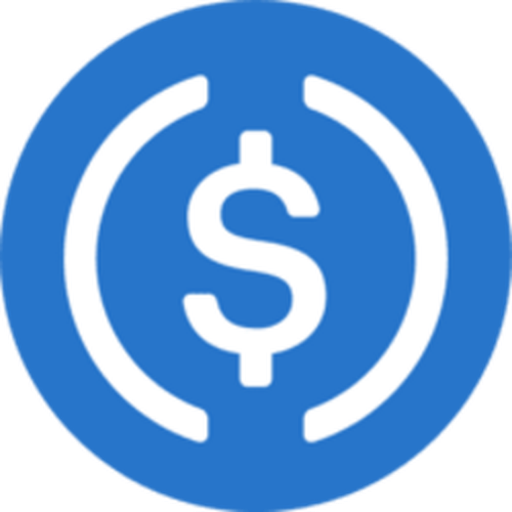USDC vs Across Protocol – Price, Market Cap & Performance Compared
Which coin performs better – USDC or Across Protocol?
We compare the current price (0.99971 $ vs 0.17279 $), market cap (74 153 765 385 vs 105 118 292) and all-time high (1.17 vs 1.69).
Find out which one stands out right now!
USDC is currently trading at 0.99971 $, while Across Protocol stands at 0.17279 $. These cryptocurrencies differ not only in price but also in market presence.
The market cap of USDC is around 74 153 765 385, and Across Protocol has about 105 118 292. Their respective all-time highs are 1.17 for USDC and 1.69 for Across Protocol.
Daily trading volume and the 24h price change (-0.00009 % vs -2.98101 %) also offer key insights.
Compare all metrics now and see which coin fits your investment strategy best!
USDC
USD Coin (USDC) is a stablecoin that is pegged to the US dollar, offering a consistent value and reducing the volatility often associated with cryptocurrencies. It provides a crucial bridge between traditional financial systems and digital currency markets, facilitating easy and secure transactions. USDC's foundation on blockchain technology ensures transparency and enhances trust among users and institutions.
more informationAcross Protocol
Across Protocol is an innovative cryptocurrency that focuses on providing efficient and secure cross-chain transactions, allowing users to seamlessly transfer assets between different blockchain networks. By utilizing advanced decentralized technologies, it aims to solve interoperability challenges, enhancing the overall blockchain ecosystem's connectivity. This protocol represents a significant step forward in enabling more versatile and user-friendly interactions in the cryptocurrency space.
more information

|

|
|
|
|
General Information |
|
|---|---|
|
Title
USDC
|
Title
Across Protocol
|
|
Symbol
usdc
|
Symbol
acx
|
|
Whitepaper
-
|
Whitepaper
-
|
|
Website
|
Website
|
|
Community
-
|
Community
|
|
Last Updated
2025-09-24 23:29
|
Last Updated
2025-08-25 14:29
|
Price Data |
|
|---|---|
|
Current Price $
0.99971 $
|
Current Price $
0.17279 $
|
|
High 24h
0.99972 $
|
High 24h
0.18863 $
|
|
Low 24h
0.99960 $
|
Low 24h
0.16978 $
|
|
Price Change 24h
0.00000 $
|
Price Change 24h
-0.00531 $
|
|
Price Change % 24h
-0.00009 %
|
Price Change % 24h
-2.98101 %
|
Market Data |
|
|---|---|
|
Market Cap
74 153 765 385
|
Market Cap
105 118 292
|
|
Total Volume
10 559 655 699
|
Total Volume
13 154 250
|
|
Market Cap Change 24h
159 815 467
|
Market Cap Change 24h
-3 383 118
|
|
Market Cap Change % 24h
0.21598 %
|
Market Cap Change % 24h
-3.11804 %
|
|
Return on Investment (ROI)
-
|
Return on Investment (ROI)
-
|
Supply and Availability |
|
|---|---|
|
Circulating Supply
74 175 659 818
|
Circulating Supply
608 255 575
|
|
Total Supply
74 172 355 958
|
Total Supply
1 000 000 000
|
|
Max Supply
-
|
Max Supply
1 000 000 000
|
Historical Data |
|
|---|---|
|
All Time High (ATH)
1.17
|
All Time High (ATH)
1.69
|
|
ATH Change %
-14.75232 %
|
ATH Change %
-89.76663 %
|
|
ATH Date
2019-05-08 00:40
|
ATH Date
2024-12-06 13:25
|
|
All Time Low (ATL)
0.87765
|
All Time Low (ATL)
0.03441
|
|
ATL Change %
13.90744 %
|
ATL Change %
402.26089 %
|
|
ATL Date
2023-03-11 08:02
|
ATL Date
2023-06-01 08:30
|
USDC
Understanding USDC: A Stablecoin in the Volatile Crypto World
USDC, or USD Coin, is a prominent stablecoin in the cryptocurrency market. Issued by Circle and backed by fully reserved assets, USDC is designed to maintain a 1:1 value ratio with the US Dollar, making it a reliable digital dollar. The stablecoin ecosystem plays a crucial role in the broader cryptocurrency industry by providing a less volatile alternative to traditional cryptocurrencies like Bitcoin and Ethereum.
The Evolution of USDC
Launched in 2018, USDC was developed as part of a collaboration between Circle and Coinbase, two major forces in the cryptocurrency space. Since its inception, USDC has seen significant growth and adoption, becoming one of the leading stablecoins alongside Tether (USDT) and Binance USD (BUSD). While its all-time high reached $1.17 in May 2019, this was more of an anomalous spike that reinforced the need for rigorous controls to maintain stability around its intended $1 peg.
Pros of Using USDC
One of the primary advantages of USDC is its transparency and regulatory compliance. Circle, the company behind USDC, undergoes regular audits and publishes monthly attestations of its reserves, ensuring users that each USDC token is truly backed by a dollar or dollar-equivalent asset held in reserve. This transparency fosters trust and helps mitigate the volatility that plagues much of the crypto market.
Furthermore, USDC serves as a bridge between traditional finance and the blockchain world. It's used widely in Defi applications, allowing decentralized lending, borrowing, and trading while maintaining value stability. Additionally, USDC's integration into various wallets and exchanges worldwide adds to its utility and liquidity.
Cons of USDC
Despite its advantages, USDC is not without its drawbacks. One of the critical concerns involves regulatory risks, as stricter regulations on stablecoins could impact its future operations. Also, as a centralized stablecoin, USDC is subject to censorship concerns, where accounts can be frozen, diverging from the decentralized ethos that underlies most cryptocurrencies.
Another drawback is that, unlike decentralized alternatives, USDC requires a level of trust in the issuer, Circle. Any potential mismanagement or economic instability affecting Circle could, in theory, impact its ability to maintain the 1:1 peg, a risk inherent to any centralized stablecoin.
Past Performance and Market Impact
USDC has generally maintained its peg effectively, with minor fluctuations typically remaining within a tight range around $1. Its stability has been pivotal during periods of crypto market volatility, where it serves as a safe haven for investors looking to escape market downturns without exiting the crypto ecosystem.
In terms of market cap, USDC has experienced exponential growth, driven by increased adoption in the decentralized finance (Defi) space and demand for stable trading pairs. Despite being eclipsed by Tether (USDT) in terms of market share, USDC's reputation for transparency gives it a competitive edge.
Future Outlook for USDC
Looking ahead, USDC's future appears promising but laden with challenges. The growing scrutiny from regulators worldwide could result in regulatory changes impacting its operations. However, Circle's proactive approach to compliance and regulation may shield USDC from adverse outcomes.
The stablecoin's role in facilitating seamless transactions and enabling innovative financial products in the Defi space will likely continue to drive its utility and adoption. Moreover, as traditional financial institutions begin to explore blockchain technology, USDC could play a critical role in bridging the two worlds.
In summary, USDC's stability, transparency, and integration with both traditional and decentralized finance systems position it as a key player in the ongoing evolution of digital finance. However, navigating regulatory landscapes and maintaining trust will be crucial for its sustained success.
Across Protocol
The Journey of Across Protocol: An Overview
Across Protocol, denoted by the symbol ACX, has gradually positioned itself as a noteworthy participant in the cryptocurrency ecosystem. With a current price of $0.318123, its trajectory has been marked by significant fluctuations, noteworthy developments, and a committed community backing its advancements. Let us delve deeper into its past progress, present standing, and future prospects.
A Historical Perspective: Riding the Waves
Since its inception, Across Protocol has experienced a dynamic journey in the cryptocurrency markets. The coin reached its All Time High (ATH) of $0.478292 in mid-2024, shortly after a remarkable bullish phase. The underlying factors contributing to this peak included strong market sentiment, developments in protocol functionality, and heightened network activity.
However, it is essential to recognize the resilience of ACX during downturns. From its All Time Low (ATL) of $0.03440846 observed in June 2023, it has rebounded by an impressive 825.03%. This recovery reflects the intrinsic belief investors place in the protocol’s potential and its fundamental utility.
Analyzing the Pros: Reasons for Optimism
One of the standout advantages of Across Protocol is its robust transaction system that emphasizes speed and efficiency. Designed to allow seamless cross-chain transfers, it addresses some of the most pressing challenges in blockchain interoperability — a key hurdle for widespread crypto adoption.
In addition to its technical prowess, the coin's capped supply of 1 billion ACX tokens bolsters its attractiveness among investors. With a current circulating supply of approximately 419 million, scarcity dynamics are likely to come into play, potentially driving appreciation in value over time.
Considerations and Challenges: Weighing the Cons
Despite its merits, Across Protocol faces challenges typical of most cryptocurrencies. Volatility remains a significant concern, exemplified by its recent price swings within a 24-hour period. Investor sentiment is a fickle force, susceptible to marketwide trends and speculative behavior, which could impact ACX's price stability.
Furthermore, the competition within the space of cross-chain protocols is fierce, with numerous well-funded projects and emerging technologies threatening to dilute market share. Ensuring a continuous edge in technological improvements and user acquisition will be vital for maintaining a competitive advantage.
Looking Forward: Future Prospects
The future of Across Protocol appears promising, driven by advancements in blockchain technology and an increasing demand for seamless cross-chain solutions. Strategic partnerships, community engagement, and continued innovation remain pivotal in enhancing ACX's utility and market presence.
If Across Protocol continues to improve its protocol capabilities and maintains a close alignment with user needs, its adoption could expand significantly. Moreover, as regulatory landscapes around cryptocurrencies become clearer, ACX's structured tokenomics and advanced functionalities position it well for long-term sustainability.
In conclusion, Across Protocol (ACX) is a compelling asset within the cryptocurrency domain, equipped with the technology and vision needed to thrive in an ever-evolving landscape. While challenges persist, its capacity to connect disparate chains efficiently makes it a noteworthy contender for the future of decentralized finance ecosystems.

